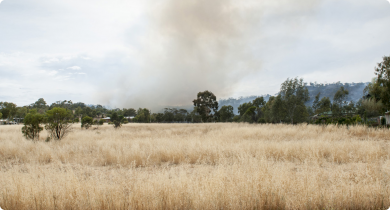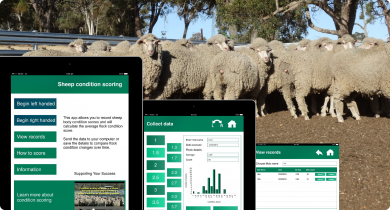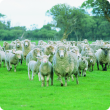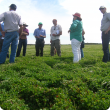Livestock management
Management of livestock must take into account variable seasonal factors, fluctuating markets and declining terms of trade. The most successful producers have a good knowledge of market requirements, matching product quality to suit. There are many factors that can determine the productivity and profitability of a livestock enterprise. These include the supply and quality of feedstuffs, the use of the most appropriate genetics, ensuring high health standards, optimising housing or environmental conditions, meeting quality assurance requirements, and having a sound knowledge of market requirements. This requires good communication along the value chain.
The Department of Primary Industries and Regional Development has technical expertise in a range of areas related to livestock management but acknowledges that there are many other sources of information that producers should be encouraged to seek out. There are many grower groups who play an important role in encouraging discussion amongst producers to improve adoption of new technology, as do private consultants and university scientists.
See Also
Filter by search
Filter by topic
- Livestock species (161) Apply Livestock species filter
- Sheep (118) Apply Sheep filter
- Pests, weeds & diseases (74) Apply Pests, weeds & diseases filter
- Management & reproduction (70) Apply Management & reproduction filter
- Feeding & nutrition (65) Apply Feeding & nutrition filter
- Biosecurity & quarantine (61) Apply Biosecurity & quarantine filter
- Biosecurity (60) Apply Biosecurity filter
- Diseases (51) Apply Diseases filter
- Livestock biosecurity (50) Apply Livestock biosecurity filter
- Livestock health & diseases (49) Apply Livestock health & diseases filter
- Climate, land & water (47) Apply Climate, land & water filter
- Crops (39) Apply Crops filter
- Beef cattle (34) Apply Beef cattle filter
- Livestock disease surveillance (34) Apply Livestock disease surveillance filter
- Livestock research & development (32) Apply Livestock research & development filter
- Land use (28) Apply Land use filter
- Pastures (25) Apply Pastures filter
- Livestock parasites (25) Apply Livestock parasites filter
- Rangelands (22) Apply Rangelands filter
- Climate & weather (16) Apply Climate & weather filter
- Genetics & selection (15) Apply Genetics & selection filter
- Control methods (14) Apply Control methods filter
- Resource assessment (13) Apply Resource assessment filter
- Stockfeed (12) Apply Stockfeed filter
- Pasture management (11) Apply Pasture management filter
- Pigs (11) Apply Pigs filter
- Pests (11) Apply Pests filter
- Climate change (10) Apply Climate change filter
- Chemicals (10) Apply Chemicals filter
- Soils (9) Apply Soils filter
- Livestock movement & identification (9) Apply Livestock movement & identification filter
- Emergency animal disease preparedness (9) Apply Emergency animal disease preparedness filter
- Grains (8) Apply Grains filter
- Dairy cattle (8) Apply Dairy cattle filter
- Food, export & investment (7) Apply Food, export & investment filter
- Pest mammals (6) Apply Pest mammals filter
- Pest animals (6) Apply Pest animals filter
- Animal welfare (6) Apply Animal welfare filter
- Invasive species (6) Apply Invasive species filter
- State Barrier Fence (5) Apply State Barrier Fence filter
- Pasture species (5) Apply Pasture species filter
- Small landholders in Western Australia (4) Apply Small landholders in Western Australia filter
- Veterinary chemicals (4) Apply Veterinary chemicals filter
- Poultry & birds (4) Apply Poultry & birds filter
- Goats (4) Apply Goats filter
- Crop weeds (4) Apply Crop weeds filter
- Horticulture (4) Apply Horticulture filter
- Mechanical, physical and cultural (4) Apply Mechanical, physical and cultural filter






